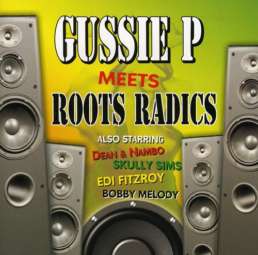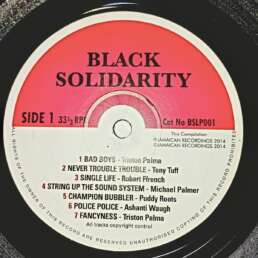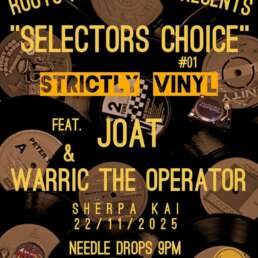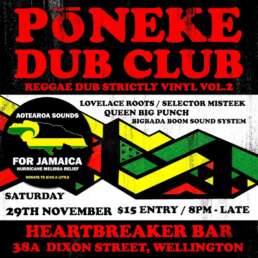To be honest, I’m pretty disillusioned by the current state of Jamaican music. I don’t claim to have a particularly innate knowledge of modern bashment. However, from my perspective – as a lover of the roots-reggae – the digitalised riddims of today lack the musical depth and quality of the original roots sound. Even the ‘new roots’ sound that is emerging doesn’t really do it for me. I try and enjoy the tracks, but at the end I can’t help but feel short-changed.
To me it seems that they are really just gimmicky, watered-down versions of the original sound. I don’t wish to offend anyone who does enjoy that sound, those are just my views. With this in mind, when I discovered that the Roots Radics band were still jamming together I was more than a little stoked.
The Roots Radics are undoubtedly one of the tightest bands ever to grace Jamaica. From the late 70s to the mid 80s they literally revolutionised the sound of roots-reggae. Their stark and uncannily precise sound exposed the nature of riddim like no band before them, and opened the door for the rub-a-dub dancehall sound to emerge. Ironically, the band’s machine-like efficiency probably helped usher the Jamaican sound toward digitalisation.
This album is very much a rub-a-dub affair. Featuring veteran engineer Gussie P on the mix, and seemingly most of the bands original line-up, the riddims are astonishingly tight.
The combination of Flabba Holt on bass and Style Scott on the drums is one of the great pairing of reggae history – and they both continue to shine on this album. Styles drum beats in particular are amazing – subtle yet hugely effective – they would almost be worth listening to by themselves. When you throw in the likes of Bunny Binghy on lead guitar, Nambo Robinson and Dean Frazer on horns, and Bongo Herman on percussion, the sound is really a joy to behold.
The album also features two vocalists – Edi Fitzroy and Bobby Melody. Though they are used only sparingly, they still add plenty to the overall quality of the album.
To a certain extent, the album stays true to their original sound – as reggae-auteurs their sound is still instantly recognisable. However there are some changes. By trading their analogue spring-reverbs and tape delays for digital effects units, and by incorporating computer recording techniques, the sound is considerably cleaner than their earlier work.
This is a double-edged sword. Though this does open up new experimental possibilities for them – which they do explore – the sound lacks the authentic grit of their earlier riddims.
I also think the album could be criticised for the fact that after each track there is a similar dub version. In general I have no problem with this – especially if the initial track is a vocal roots track that is deconstructed in the version. However this album is dubwise throughout and the ‘versions’ are virtually identical to the prior track. However this is a minor criticism because the riddims are so good that I am happy to listen to them twice.
It’s extremely refreshing to hear modern Jamaican musicians take such a rootical approach and I can only hope that offerings like this will help guide the JA music industry back to the level of quality that it once enjoyed.
Naram
Related posts
Triston Palma – Bad Boys – Track of the Week
November 17, 2025
Selectors Choice – Sat 22 Nov
November 12, 2025
Pōneke Dub Club – Sat 29 Nov
November 11, 2025




